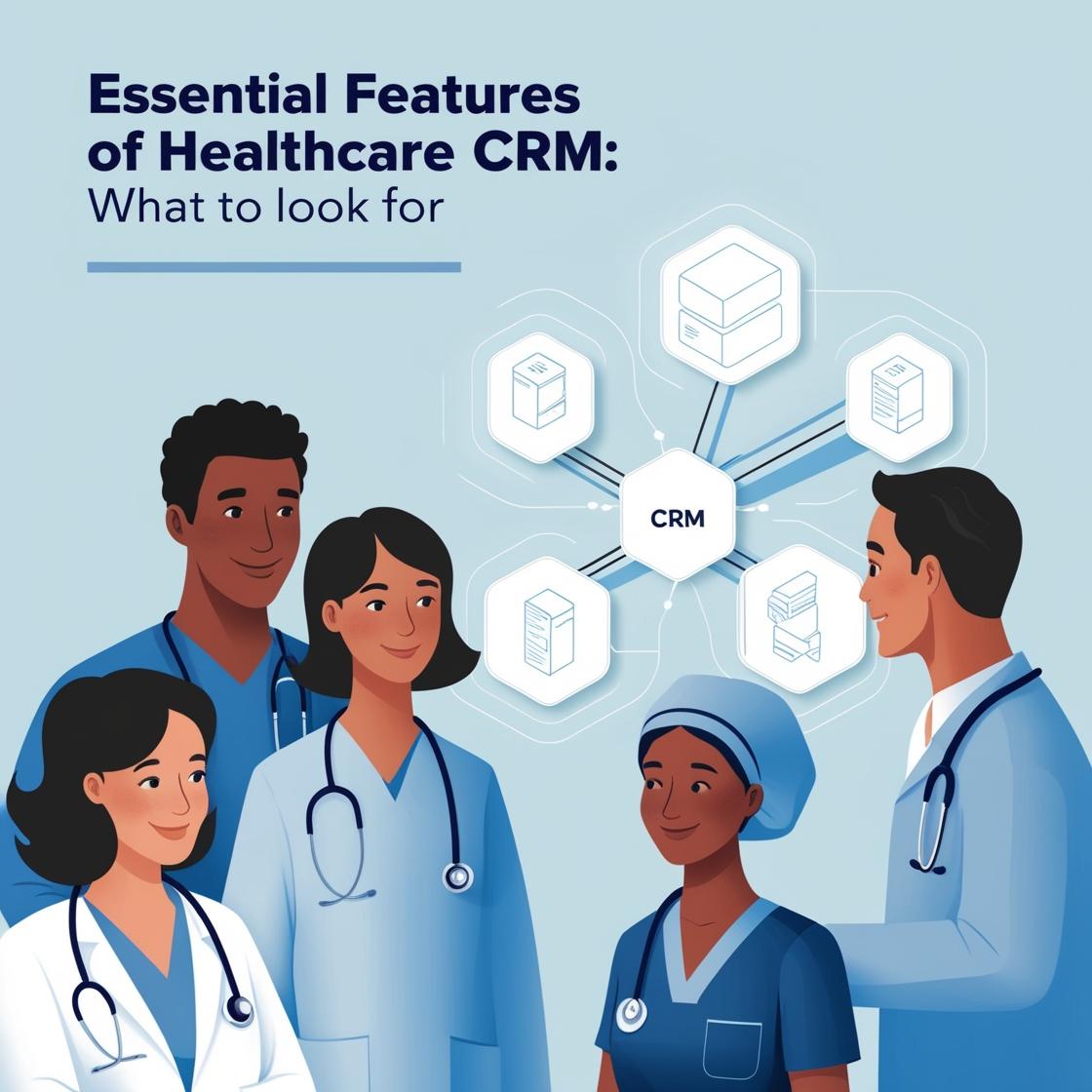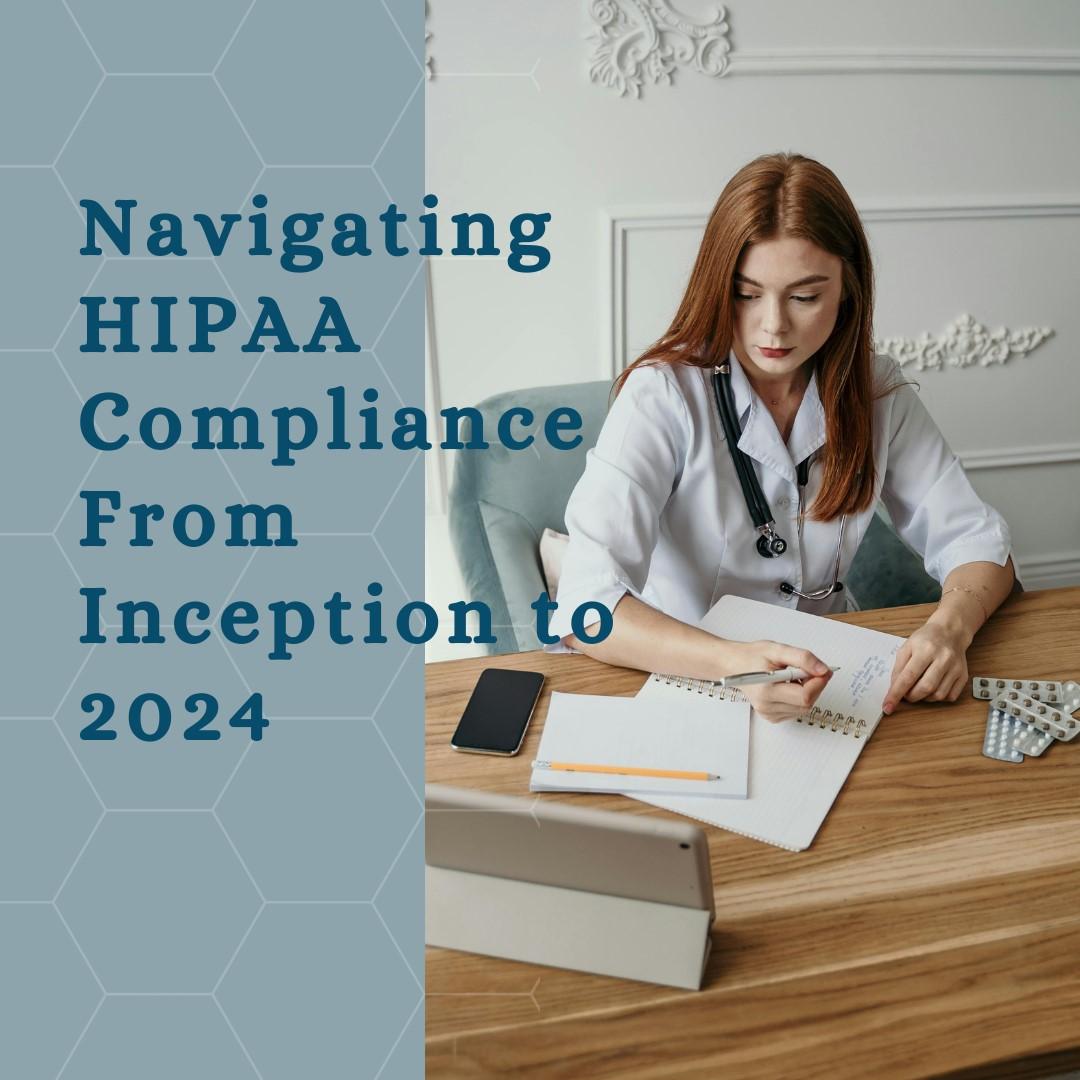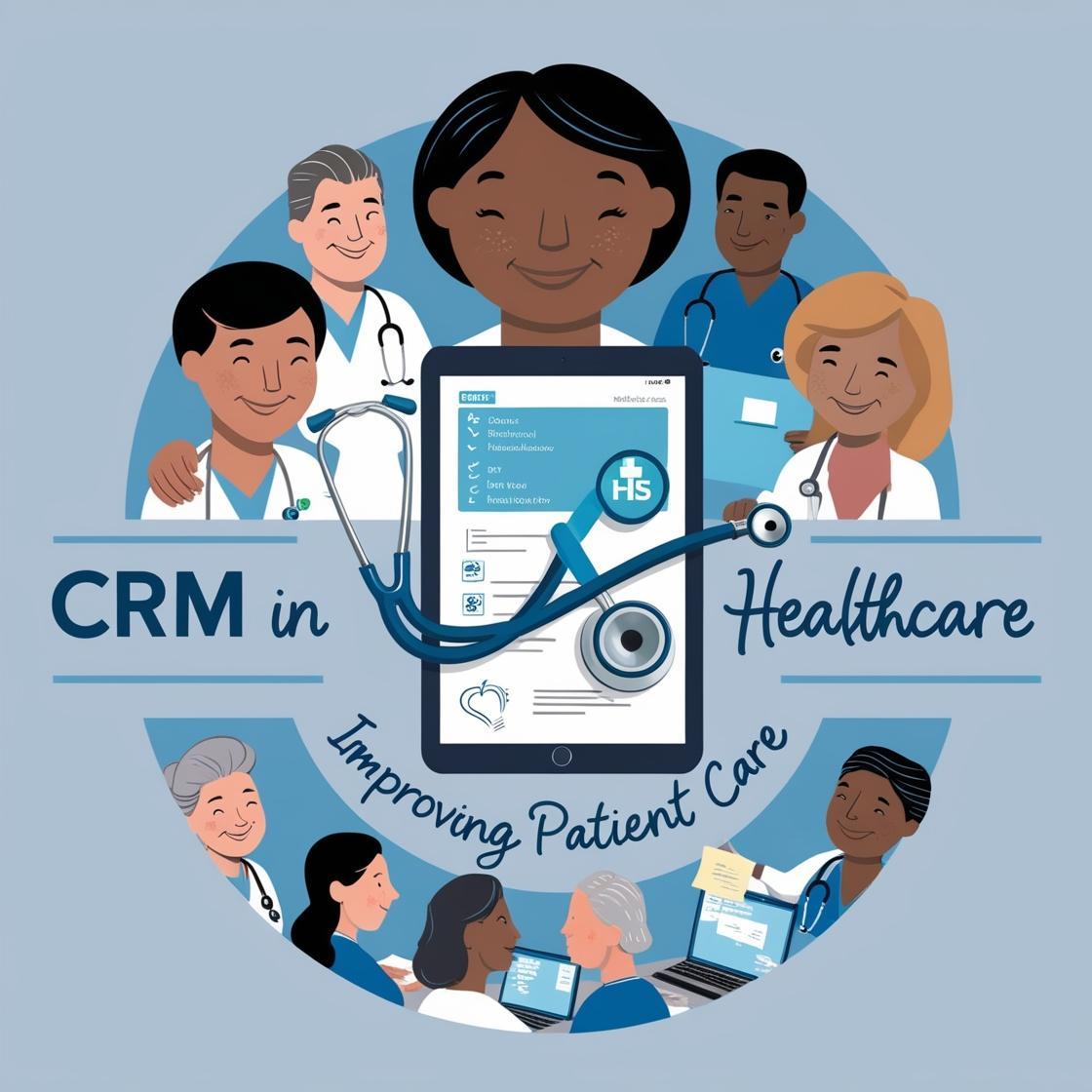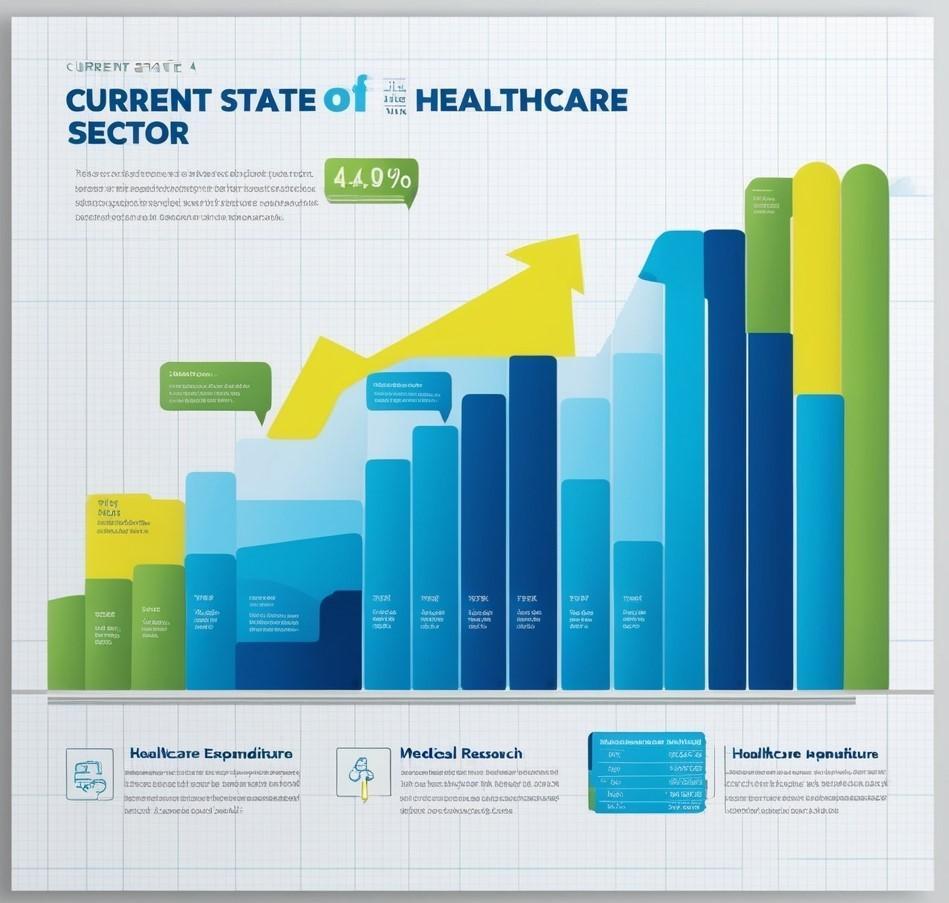What is Healthcare CRM?
With many industries growing in this era, the healthcare industry is one of the fastest-growing and largest industries in the world
What idea came to your mind if you heard or learned about the word CRM(Customer Relationship Management), and by associating this word with the Healthcare Industry?
Let's dive and learn more about CRM in healthcare.
Healthcare CRM software is a specialized solution for managing and analyzing patient interactions and data throughout the healthcare lifecycle. It centralizes information from various touchpoints, such as patient appointments, medical histories, prescriptions, lab results, and billing details, allowing healthcare providers to gain deeper insights into patient needs.
Healthcare CRM is essentially a full-featured patient relationship management tool that supports medical facilities in improving both the quality of care and patient satisfaction.
including facts, why it is so popular today, showing the era of advancement, and its usag,e CRM was first introduced in healthcare in the early 2000s. At that time, CRM software was not as well developed as comparable to the current structure of software design and the more secure features it offers today.
Unlike standard CRMs, a healthcare CRM is specifically designed for the complex workflows of healthcare providers. Its primary goal is to improve communication between patients, doctors, therapists,
health insurance companies, and other stakeholders in the healthcare system. For example, it offers automated features for scheduling appointments, sending patient reminders, and managing follow-up activities.
Healthcare CRM also supports marketing automation, allowing healthcare providers to stay in touch with patients by sharing relevant healthcare tips or promoting specialized services.
Initially, these systems were simple data storage solutions, but today they include everything from appointment scheduling and patient records to marketing automation and patient follow-up.
The development has enabled hospitals, clinics, and other medical facilities to move beyond simple customer management to full-scale. Patient Relationship Management systems that help improve both clinical outcomes and patient satisfaction.
Evolution of CRM Systems for Healthcare Organizations:
CRM systems were first created for the business sector to assist businesses in managing client data and cultivating enduring connections. CRMs were first used in the healthcare sector in the early 2000s as a result of the industry's early recognition of their benefits. Healthcare CRM developed over time to incorporate more features specific to the industry as it became more digitally connected. These features included HIPAA compliance, integration with EHR systems, and workflows designed specifically for medical professionals, such as nurses, therapists, and doctors.
Importance of CRM in Healthcare:
Improving Patient Care:
If I emphasize enhancing patient care it is one of Healthcare CRM's most important functions. CRMs give healthcare providers a 360-degree view of each patient's medical history, treatment plans, and preferences by providing a centralized platform for managing patient data.
Physicians and therapists can provide more individualized, effective, and efficient care with the aid of this data-driven approach. For example, a CRM for physicians makes it simple for them to monitor patient progress and make real-time treatment plan adjustments.
A patient CRM system also improves communication between patients and healthcare professionals. Patients who receive automated reminders about impending appointments or prescription renewals are less likely to miss them and are more likely to follow the recommended course of treatment.
This unique approach enhances patient loyalty and satisfaction, leading to improved retention rates.
Improving Operational Efficiency :
Operational efficiency is a top priority for healthcare organizations and CRM systems play a key role in streamlining workflows.
Healthcare CRMs often include integrated scheduling systems that allow staff to efficiently manage patient appointments, surgical schedules, and lab test schedules.
By automating patient care, appointment reminders, and follow-up procedures, the administrative burden on healthcare providers is significantly reduced.
Additionally, integrating CRMs with EHR systems allows for seamless data exchange, reducing the risk of misunderstandings or errors in patient care.
This integration also allows healthcare providers to spend less time on administrative tasks and more time providing quality care to their patients. Increasing Patient Retention and Satisfaction.
Increasing Patient Retention and Satisfaction:
Retaining patients is critical not only for revenue but also for maintaining continuity of care. CRM in the hospital industry helps foster long-term relationships with patients by ensuring every touchpoint - from appointment booking to billing - is handled smoothly.
CRM in medical billing enables a more transparent and efficient process, reducing patient frustration with payments and improving the overall experience. Additionally, CRMs in healthcare enable personalized patient engagement through targeted communications, making it easier for providers to follow patients on their journey to wellness.
Whether through CRM for patients or CRM for therapists, these systems help create a sense of care and engagement, improving patient satisfaction and ultimately patient retention.
How Healthcare CRM Differs from Other CRMs:
Unique Features and Functionalities
While CRM systems in other industries focus primarily on sales, customer service, and marketing, CRM systems in healthcare are designed to meet the specific needs of healthcare professionals and patients. Unique features include:
- HIPAA Compliance: Unlike general CRMs, a healthcare CRM must comply with the Health Insurance Portability and Accountability Act (HIPAA) to ensure patient data is protected and used responsibly.
- Integration with EHR systems: Unlike a traditional CRM, Healthcare CRM seamlessly integrates with EHR systems that store patients' electronic medical records. This integration provides real-time access to patient information and ensures continuity of care.
- Patient Segmentation: A Healthcare CRM allows healthcare providers to segment patients based on their medical conditions, treatment plans, or demographics. This feature enables better care management and targeted contact
Industry-Specific Compliance Requirements:
Industry Compliance Requirements One of the key differences between Healthcare CRM and other CRM systems is the need to meet to strict regulatory standards, particularly when it comes to patient data privacy and security. In the US, HIPAA plays a crucial role in determining how patient data can be stored, accessed, and shared.
A healthcare CRM must not only provide encryption but also ensure that access to patient information is restricted to authorized personnel.
This differs from CRMs in industries like retail or finance, where data compliance standards are less stringent. In addition to HIPAA, healthcare CRMs must meet industry-specific guidelines related to health insurance CRM, clinical workflows, and physician and therapist CRM.
Difference Between Healthcare CRM and General CRM
Customization for Healthcare Workflows:
A CRM for healthcare is deeply customized to the individual workflows in the medical industry. General CRMs are designed for flexibility across industries but cannot often manage medical data, track patient history, or coordinate complex treatment plans. For example,
CRM for patients often includes tools for managing appointment scheduling, tracking health metrics, and receiving personalized care reminders, which are critical in healthcare but missing from a traditional CRM.
Healthcare CRMs also include patient triage and tracking capabilities, care management, and clinical task automation, allowing medical staff to focus more on patient care and less on administrative tasks.
Integration with Healthcare-Specific Systems:
Systems In my opinion, a key difference between healthcare CRM and general CRMs is the former's ability to integrate with healthcare-specific systems such as EHR and CRM in medical billing.
This level of integration is critical to creating a seamless patient experience and ensuring all health data is stored in one place. For example, doctors can access a patient's complete medical history during a consultation, while billing departments can easily track payments and insurance claims through the CRM.
Additionally, CRM data entry in healthcare involves capturing more than just contact details and preferences; It includes important medical information, diagnosis codes, treatment plans, and insurance information.
Conclusion:
If I summed that, the healthcare CRM has completely changed how hospitals and clinics handle their patient relationship management.
It has raised the standard of care, increased operational effectiveness, and encouraged long-term patient loyalty.
Healthcare CRM solutions, as opposed to general CRMs, are designed with the needs of the medical sector in mind.
They guarantee HIPAA compliance, integrate seamlessly with EHR systems, and provide features like marketing automation and customized workflows.
Using a patient relationship management (CRM) system is crucial for clinicians, therapists, and health insurance providers to ensure that patient care is prioritized while navigating the intricacies of contemporary healthcare.
With deeper AI integration, even more sophisticated CRM solutions, and increased patient care and communication optimization, the future of healthcare is sure to bring about exciting times ahead.
Using CRM is now more than just a technical advancement for healthcare providers—it's a prerequisite for delivering top-notch patient care in a market that is getting more and more cutthroat.
Related Posts
See All
Unlocking Patient-Centered Care: Must-Have Features for Your Healthcare CRM Success
Unlocking Patient-Centered Care: Must-Have Features for Your Healthcare CRM Success Read More...

Safeguarding Patient Privacy with HIPAA-Compliant CRM Systems in 2024
Safeguarding Patient Privacy with HIPAA-Compliant CRM Systems in 2024 Read More...




